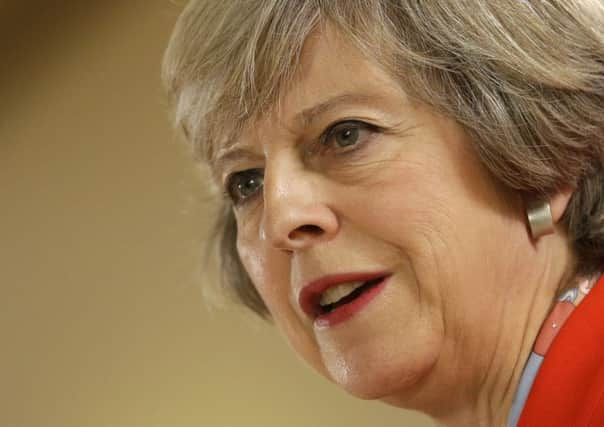English votes for English laws '˜could harm Union'


And Nationalists have claimed Evel could result in Scots MPs being deprived of a say over Britain’s exit from the European Union.
A report for the Lords Constitution Committee said a planned autumn review of the process, which strips Scottish MPs of the right to vote at certain stages of bills viewed as “England only”, should be delayed until 2020, when the impact of the changes could be fully determined.
Advertisement
Hide AdAdvertisement
Hide AdFormer Conservative Scottish Secretary Lord Lang of Monkton, the committee chairman, said it was not “ideal” that Evel had failed to secure cross-party consensus when it was introduced last year.
His committee’s report concluded that if it were to “strengthen rather than weaken the Union”, it was essential Evel attracted support from all parties while ensuring “the procedures have no demonstrably negative effects on parliament’s role as the centre of the political union, representing the interests of all parts of the United Kingdom”.
It also warns: “Attempting to provide a separate voice for England through the membership and institutions of the UK parliament carries risks.”
Commons votes relating to Brexit could prove to be a “stress test” for the procedures, the peers said.
The Evel process is aimed at ensuring that laws can only be passed if they are backed by a majority of MPs from the nations directly affected by the legislation, as some of the measures that are passed in Westminster do not affect all parts of the UK following devolution.
The policy has led to claims that Scottish MPs are now “second class”.
Kirsty Blackman MP, SNP spokeswoman on the House of Lords, said the reform created “two tiers of parliamentarians and has led to SNP MPs being locked out of important debates”.
She added: “The idea that Brexit-related issues will provide an ideal ‘stress test’ for Evel is truly baffling and the notion that Scottish MPs representing an area of the UK that voted overwhelmingly to remain in the EU could be denied a vote on important aspects of legislation that impacts the whole of the UK, such as the Great Repeal Bill, is absurd.
Advertisement
Hide AdAdvertisement
Hide Ad“The UK Government must urgently establish a set of comprehensive proposals that all parties can support and should be clear that Scottish MPs will be given a voice in all aspects of the UK’s negotiations on the EU so that we can protect our constituents and Scotland’s relationship with Europe.”
A spokesman for the UK Government said it was committed to a stronger Union and a “fair settlement for the whole of the United Kingdom”.